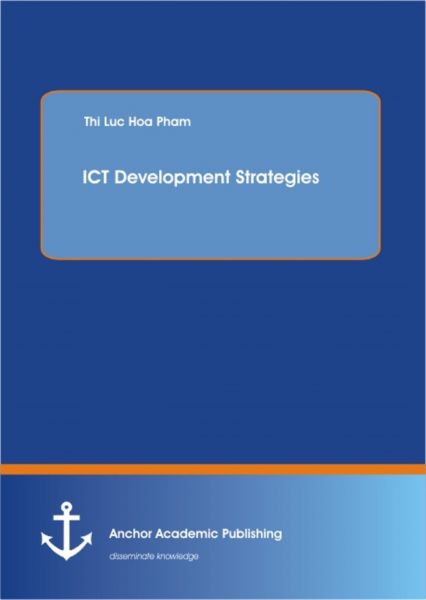ICT Development Strategies
After a decade, internet now reaches the Asian region as well as African countries intensively while USA, Canada and Europe are focusing newer inventions. Within the Asian region it exists considerably another technological gap among countries. The countries with higher income such as Japan, Singapore, South Korea has succeeded in implementing ICT in all social and economic areas. The rest of the countries, including China, Malaysia, Thailand, Indonesia, Philippines, Vietnam, Laos, Cambodia, are far behind in information technology. Nevertheless, it´s necessary for all nations, weather developed or developing, to keep on nurturing ICT development to be a part of connected world. The question is how a nation can successfully adopt ICT and benefit from all advantages at best. Unfortunately, there is no common guideline for all countries. Without identifying specific factors of each country and a lot of effort made by government, no country can achieve high ICT performance in the long run. The purpose of this paper is three-fold:To identify the characteristics and political options of a country, that would affect the success of ist ICT adoption. To identify clusters of nations upon the international ICT indices and GNI per capita To provide an overall guideline that incorporates these nations toward developing higher ICT indices.
This paper shows income level and social background can play very important roles in country´s ICT development.
Text Sample:
Chapter, 3 ICT Development in South Korea, China and Vietnam:
This chapter presents an analysis of Vietnam, China and South Korea´s macroeconomic indicators and the ICT indicators, which will be put together for an overviewed comparison among countries. Vietnam is a developing country in which the ICT is still not so strong exploited like in China and Korea. China is the biggest economy in the world, however because of its giant size the ICT adoption is constrained in some aspect. In other side, Korea has achieved an impressive ICT quality not only in Asia Region but also global perspective.
3.1, Economic Dynamics and ICT Development in Vietnam:
This section starts with the general national background of Vietnam such as history, trade, economic growth and then describes the ICT development in this country with different indicators, ICT industry and political actions.
3.1.1, National Background of Vietnam:
Vietnam is a Southeast Asian country with the population of 87.8 million inhabitants in 2011. It makes Vietnam one of the world´s most populous countries (13th). Vietnam suffered war before 1975. In early 1986, the government initiated a series of economic and political reforms. Since 2000 Vietnam had re-established diplomatic relations with most nations and joined the world economy. The joining of the World Trade Organization (WTO) in 2007 indicated the country has successfully achieved economic reforms. However, Vietnam still has some problems such as relatively high levels of income inequality, high corruption rate and lack of democracy. The socialist Republic of Vietnam is a single-party state, named the Communist Party of Vietnam. Under the Communist Party of Vietnam, all aspects of government, politics and society are strictly controlled. But in foreign relationships, the government has an open policy and has established international relations of different kinds: bilateral, multi-lateral relationships with 172 countries (2007), including the U.S., Western Europe, China, Japan, Australia and the ASEAN countries. With this open status Vietnam´s imports and exports were jointly valued at around 160% of GDP in 2006, more than twice the contemporary ratio of China and over four times the ration of India. Most of Vietnam´s provinces are dominated by agriculture in late 1980s. The Doi Moi reform (1986) brought changes in market as well as new private ownership in industries and commerce. GDP growth rate of Vietnam is around 8% annually since the reform until 2005. That makes Vietnam one of the world´s fastest growing economies. The global recession hurt Vietnam's export-oriented economy, with GDP in 2009-12 growing less than the 7% per annum average achieved during the previous decade. However Vietnam´s year-on-year inflation rate is very high and reached 11.8% in December 2010. The nominal GDP reached US$135.411 billion in 2012 and a nominal GDP per capita of $1.498 in 2012. According to the International Fund, Vietnam belongs to the “lower middle income group”. However in 2012, HSBC predicted that Vietnam´s total GDP would surpass that of Norway, Singapore or Portugal by 2050, because exports increased by more than 12%, year-on-year. From these overall information about Vietnam, next part will continue with further details of Vietnam´s ICT development.
T.L.Hoa Pham has focused in macroeconomics since 5 years in different areas like economic crisis, international trade. Especially in ICT theme she has done papers on effect of ICT on B2B and B2C. This paper of ICT development strategies is one of her works, which is dedicated as one of the best graduation-papers of the year 2013 University Wuppertal. Pro. Welfens, Chairman of this EIIW institute, was also inspired by this subject as well as the research result. T.L.Hoa Pham comes from Asia, studied both Business Administration and Economic Policy in Europe and works now in Online-trading between two regions as intermediate. She believes ICT plays the most important role in achieving any success of economy.
Versandkostenfreie Lieferung! (eBook-Download)
Als Sofort-Download verfügbar
- Artikel-Nr.: SW9783954896790
- Artikelnummer SW9783954896790
-
Autor
Thi Luc Hoa Pham
- Wasserzeichen ja
- Verlag Anchor Academic Publishing
- Seitenzahl 110
- Veröffentlichung 01.02.2014
- Barrierefreiheit
- ISBN 9783954896790

